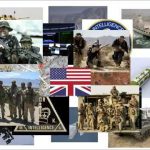Pope John Paul II Our Papa
Died: April 2, 2005
Pope: October 16, 1978 – April 2, 2005
Assassination attempt: May 13, 1981
Roman Catholic Pope #265
John Paul II was only the second pope to ever choose two names, following his predecessor. The reason for this was to both honor John Paul I and to indicate that he would not be making any major policy shifts. Wojtyla was also the first non-Italian to be chosen for this office in over 400 years (the previous was Hadrian VI in 1563, a Dutchman) and reports indicate that the election of a non-Italian pope may have been pushed by the growing influence of Catholics from outside of Europe. At just 58, he was also the youngest pope since Pius IX in 1846.
Himself a beneficiary of nepotism because his uncle, Pope Eugenius IV, Pope Paul II, promised to end the practice during his reign – along with other reforms which were designed to improve the morals and administration of the Vatican. Unfortunately, he also inherited political problems from his predecessor, Pius II, particularly a conflict with the Turks. In 1470 the last Venetian outpost in Greece, Euboea, was finally overrun and Paul tried to call for a crusade, but nothing much came of it.
During most of his youth Wojtyla lived in a free Poland, but that changed when the Nazis invaded in 1939. Although he initially fled with his family, he returned after the Russian “liberation” and began his studies as a priest. In part because of his experiences with political oppression with the Nazis, Wojtyla also encouraged resistance to the various forms of oppression experienced under Russian domination.
Wojtyla made a name for himself within the Polish Catholic Church because of his constant agitation for religious freedom under an oppressive regime and he was eventually made archbishop of Krakow in 1963. Along the way he had become an impressive scholar. He has received two doctorates (one in mystical theology and a second in philosophy) and he learned how to speak several languages fluently (including Latin, unusual even among Catholic priests).
John Paul II was a big traveller during his reign, visiting more than 120 countries and always drawing huge crowds. His efforts to go out and personally meet as many people as possible, especially young people, probably played an important role in his ever growing popularity. Even when large numbers of Catholics disagreed with the pope on his doctrinal positions, they nevertheless tended to retain a positive image of him as a person and as a leader. His travels also aided John Paul in his efforts to develop more understanding and tolerance between Christians, Jews and Muslims.
Pope John Paul II worked to promote greater understanding within Christianity itself. Coming from Poland, he was sympathetic to the traditions and practices of Eastern churches, lamenting the many years of separation and fighting. He made Cyril and Methodius coequal patron saints of Europe, alongside St. Benedict. In his words, he felt that Europe needed to “breathe with two lungs” — in other words, he felt that the legalistic tradition of the West (symbolized by Benedict) needed to be balanced with the mystical tradition of the East (symbolized by Cyril and Methodius).
On May 13, 1981 Pope John Paul II was shot and severely wounded in an assassination attempt by Mehmet Ali Agca. Although wounded badly, he made a quick recovery and soon thereafter resumed his travel schedule. The attack did give birth to the infamous “Pope Mobile,” a modified Range Rover with the back converted to a large box made of bullet-proof glass which allows him to ride along, but also stand up and wave to the crowds. In 1983 he visited his would-be assassin in jail where they spoke together for some twenty minutes. John Paul II attributed claims that he escaped death in the assassination attempt due to a miracle worked by the Blessed Virgin of Fatima.
What slowed John Paul down most was been increasingly serious health problems. He survived a bout with cancer and hip and knee ailments took their toll through the 1990s, but his Parkinson’s Disease had the most obvious impact upon his activities. It was the symptoms of Parkinson’s which finally ended his hikes in the Italian Alps and even caused him to use cargo lifts to get on and off planes.
Because of John Paul’s health problems there were occasional discussions about the possibility of him resigning. There is no real precedent for a pope resigning due to health problems — popes usually either die in office or are removed due to political conflict. There is no procedure for the College of Cardinals removing a pope in ill health; therefore, if Pope John Paul II had resigned, it would have been of his own accord because he considered himself unable to continue fulfilling his obligations.
Leave A Reply
You must be logged in to post a comment.









 Paranormal
Paranormal

